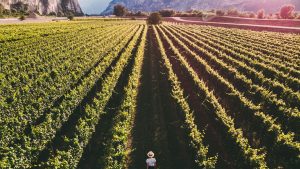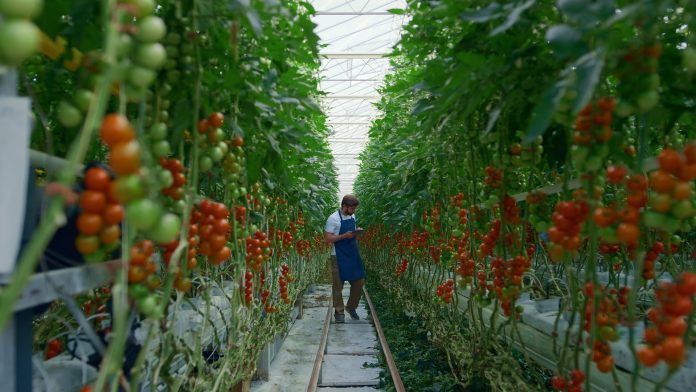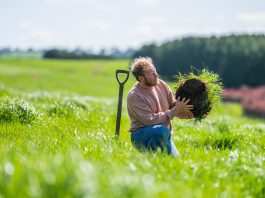With the new legislation for CAP 23, Olof Gill answered our questions about how CAP will impact European farmers and what support it offers.
With farmers facing more and more issues both within the industry and environmentally, the European Commission has established the Common Agricultural Policy 2023 (CAP 23) legislation to provide European farmers with support through disasters, environmental support, and financial support.
Olof Gill, Spokesperson of the European Commission for Agriculture and Trade, answered some of our questions regarding the new legislation.
How does CAP 2023-27 align with the European Green Deal and Biodiversity Strategy to ensure agricultural practices will contribute to environmental sustainability and biodiversity?
CAP 23 reflects a greener approach, striving to be the most environmentally and climate-focused CAP to date. To receive full payments, farmers are required to meet an enhanced set of standards covering the environment, climate, food safety, plant protection products, animal welfare, and working conditions. This conditionality principle applies to nearly 90% of the utilised agricultural area in the EU, emphasising the mainstreaming of sustainable farming practices.
In support of environmental goals, the Plans allocate a significant 32% of the total CAP budget (approximately €98bn) to voluntary actions. For instance, Italy designates over €10bn for climate and environmental interventions, compensating farmers for adopting practices that are more environmentally and climate-friendly. These include the use of fertilisers and pesticides, for example, or soil conservation practices.
These efforts highlight CAP’s commitment to promoting environmental sustainability and biodiversity while encouraging farmers to adopt practices that are more sustainable.
How will CAP balance providing income support through direct payments with encouraging farmers to adopt sustainable and environmentally friendly practices?
On average, agricultural income is only 45% of the average wage in the economy, with variations between different agricultural sectors and farming systems. In 2020, CAP support accounted for 23% of EU farm income on average. It proves key to maintaining agricultural activity and jobs in remote rural areas, slowing down land abandonment and rural depopulation.
To receive full CAP payments, farmers must respect an enhanced set of requirements and standards for the environment, climate, health, animal welfare, and decent working conditions. This principle of conditionality applies to close to 90% of the utilised agricultural area in the EU and plays an important role in mainstreaming sustainable farming practices.

Besides income support, how does the CAP contribute to rural community development and job creation in both upstream and downstream sectors of agriculture?
CAP goes beyond income support, making substantial contributions to rural community development and job creation in both upstream and downstream sectors of agriculture.
With a dedicated focus on the social and economic fabric of EU rural areas, CAP 23 invests in precision farming, innovation, and farmer training across the EU.
In concrete terms, CAP allocates nearly €25bn (8% of the total budget from 2023 to 2027), significantly boosting the economic landscape of EU rural areas. Initiatives such as installation aid and higher investment rates target the attraction of 377,000 new young farmers, fostering innovation and job creation in the upstream agriculture sector.
Indeed, we aim at having 377,000 new young farmers during this programming period, thanks to several tools such as the support income for young farmers, the installation aid for young and new farmers, higher rate for investments, support to farm transfers via the co-operation tool, or even intergenerational exchange of knowledge.
The CAP framework offers multiple opportunities to support rural areas in creative ways beyond agricultural activities. Several Member States take advantage of these opportunities to support social services, natural parks, renewable energy production, rural mobility systems or business creation in sectors other than farming.
The Horizon Europe fund, with over €3bn, supports research and innovation in agriculture, forestry, and rural areas; and provides a substantial financial backing for technological advancements, creating job opportunities in downstream sectors.
Strategic partnerships, like Circular Bio-based Europe, showcase a dedication to job creation and environmental protection. Supported by CAP, precision farming technologies optimise resource use, enhancing crop yields and generating jobs in related sectors.
In summary, the CAP’s multi-faceted approach actively promotes rural community development and job creation across the entire agricultural value chain.
How will transparency and accountability be ensured in the management of CAP funds at the national level, and what measures will track the impact of CAP financing on income support and rural development?
The Commission has solid rules and procedures in place to protect the EU budget and to make sure every euro is well spent.
Under shared management, EU countries are responsible for implementing and controlling the various schemes under CAP legislation. The Commission’s role is to ensure that Member States manage CAP funds in a sound way, that taxpayers’ money is spent properly, and that the EU does not pay for projects or claims that do not comply with the established rules.
EU countries execute payments to farmers and other beneficiaries through national or regional paying agencies, and these agencies undertake a rigorous system of checks before payments are made.
The Commission also conducts audits several times a year and claims back to Member States the amount that has not been paid in compliance with EU rules due to errors or, more rarely, fraud.
Regarding the evaluation of the current CAP for farmers and the agricultural sector, the Commission has already published a first evaluation report in November 2023, which assesses the impact of the Strategic Plans for delivering on the goals of the Common Agricultural Policy (CAP) 2023-2027, particularly those linked to environment, climate, and societal expectations such as animal welfare.
The report confirmed that the CAP Strategic Plans aim to deliver the most ambitious CAP ever from an environmental and climate perspective.
There will also be annual performance reports and interim and final evaluations in 2026 and 2031, respectively. In line with its transparency and monitoring requirements, the European Commission also provides detailed information on all CAP Strategic Plans online, with a summary of all Plans, a catalogue of CAP interventions, and dashboards on result indicators and financial allocations.
Please note, this article will also appear in the seventeenth edition of our quarterly publication.









